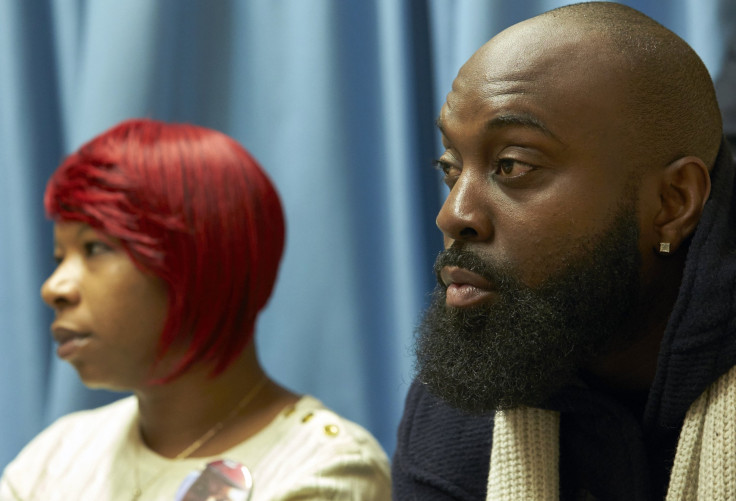Mike Brown Civil Lawsuit Vs. Darren Wilson And Ferguson: Can Unarmed Teen's Family Win The Case?

Even though the U.S. Department of Justice outlined a long list of improprieties by police in Ferguson, Missouri, its report Wednesday on the shooting death of Michael Brown Jr. in suburban St. Louis last summer will likely have little impact on a civil lawsuit planned by the unarmed black teenager’s family, legal experts said Thursday. While the DOJ’s findings may have boosted the chances of a successful suit, those experts said it’s difficult to connect the report’s conclusions to Brown’s controversial death at the hands of Darren Wilson, a white police officer.
“It makes it more likely that the public and a court would find it credible that the city acted in a way that might have violated Mr. Brown’s constitutional rights,” Marcia L. McCormick, a professor at the Saint Louis University Law School, said of the findings, which accused the Ferguson Police Department of using black residents as revenue generators for the city by targeting them with excessive arrests and fines.
“It doesn’t necessarily mean, though, that they don’t have something of a challenge if they decide to go forward and sue the city. Linking those aggregate policies to what happened to Mr. Brown may be a little bit challenging. It doesn’t show anything about Officer Wilson’s state of mind, for example,” McCormick said.
Attorneys for Brown’s parents announced Thursday they plan to file a wrongful-death lawsuit, which is separate from any claim that the 18-year-old’s civil rights were violated. They pointed out that a civil case has a lower burden of proof than the criminal charges considered first by a grand jury and then by the Justice Department. “We feel, and we’ve always felt from the very beginning, that Officer Darren Wilson did not have to shoot and kill Mike Brown Jr. in broad daylight in the manner that he did, that he had other options available to him,” said Vincent Gray, one of the lawyers.
Randolph M. McLaughlin, a professor at the Pace Law School in New York who specializes in civil rights litigation, said the attorneys should have announced their intentions to file both a wrongful-death lawsuit and a civil-rights suit. It’s still possible the lawyers may do that, but there was no mention of a civil-rights case during their news conference.
“If I were filing this lawsuit, I would attach the DOJ’s report as Exhibit A in my complaint,” McLaughlin said. “I think it has tremendous impact. While the DOJ cleared Wilson of any intentional wrongdoing, the report is a damning indictment of the city of Ferguson,” he said.
But a wrongful-death case may not go that far, considering that both a grand jury and the federal government declined to charge Wilson, according to Ekow N. Yankah, a professor at the Benjamin N. Cardozo School of Law in New York. “After all, if what the Department of Justice says is that the Ferguson Police Department allowed structural racism and irresponsibility, than it makes it easier to think Darren Wilson may have harmed Michael Brown unlawfully, but the problem is much of the evidence so far makes it hard to conclude that Michael Brown was tortiously killed,” Yankah said. “A civil suit would’ve been easier because the standard of proof is easier, but, because of the facts, a civil suit is going to be difficult,” he said.
So, too, would a civil-rights claim against Wilson and the Ferguson Police Department, according to Mark R. Brown, a constitutional-law expert at Capital University Law School in Columbus, Ohio, who gave no better than a 50-50 chance of the city and Wilson losing. The Justice Department’s findings probably aren’t sufficient to wage a successful case, Brown indicated. “What they have to show is that there’s a pattern or practice of using excessive force in a way that was similar to that use [in Brown’s case.] It’s not just any kind of force,” he said.
There’s also a “problem of volume,” according to Capital University’s Brown. Just how many cases of excessive force would the attorneys for Michael Brown Jr.’s family need? It’s not clearly spelled out. In a case against the city of Philadelphia, however, the plaintiffs were told that five examples weren’t enough to constitute a pattern. Ferguson is much smaller, and there were no cases similar to Brown’s in the Justice Department report.
The report’s more important takeaway is it revealed the kind of practices that if they had been curbed, then that may have prevented Brown’s death, according to Yankah. “The Department of Justice report should focus people on the things that never get spoken about, including the things that will never make it into a court of law,” he said. “An attitude of contempt by an entire police department and the constant running into police officers who harass you, who demean you, who call you racial epithets sets the stage” for the circumstances that led to Brown’s killing.
© Copyright IBTimes 2024. All rights reserved.






















